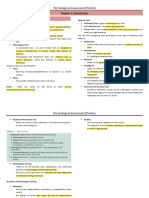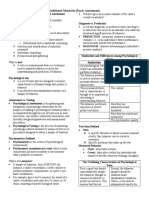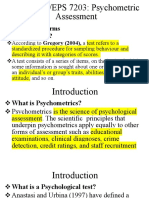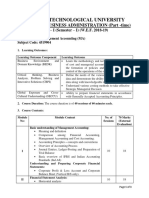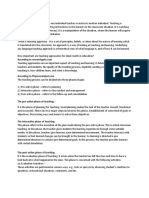0% found this document useful (0 votes)
21 views4 pagesRecord Intro For Class 12
Psychological testing involves administering structured tests to assess psychological attributes like intelligence and personality. Tests are categorized based on administration, behavior, and context, and must adhere to principles of standardization, objectivity, reliability, and validity. Applications of psychological testing include behavior detection, individual differences assessment, diagnosis, and various fields such as education and industry.
Uploaded by
kpgmurali65Copyright
© © All Rights Reserved
We take content rights seriously. If you suspect this is your content, claim it here.
Available Formats
Download as PDF, TXT or read online on Scribd
0% found this document useful (0 votes)
21 views4 pagesRecord Intro For Class 12
Psychological testing involves administering structured tests to assess psychological attributes like intelligence and personality. Tests are categorized based on administration, behavior, and context, and must adhere to principles of standardization, objectivity, reliability, and validity. Applications of psychological testing include behavior detection, individual differences assessment, diagnosis, and various fields such as education and industry.
Uploaded by
kpgmurali65Copyright
© © All Rights Reserved
We take content rights seriously. If you suspect this is your content, claim it here.
Available Formats
Download as PDF, TXT or read online on Scribd
/ 4

























